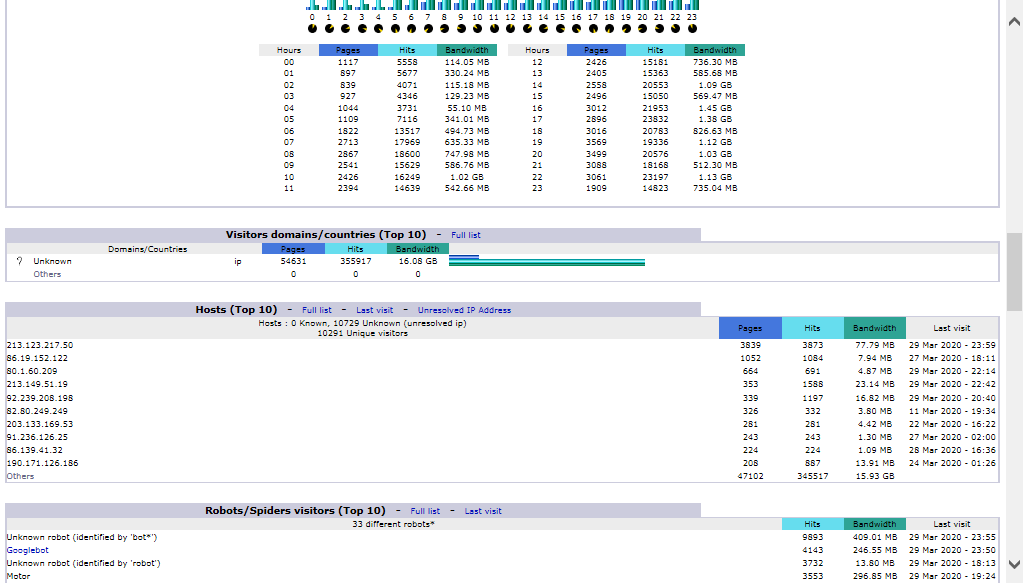Hi Justec
I hope your well and keeping safe
We use the below
cd /usr/local/src/
git clone https://github.com/cloudflare/mod_cloudflare.git &&
cd /usr/local/src/git clone https://github.com/cloudflare/mod_cloudflare.git
cd mod_cloudflare
apxs -a -i -c mod_cloudflare.c
rsetart apache
httpd -M |grep cloudflare_module
However, after reading your link to CF, I think I need to unistall mod_cloudflare and in favour of remoteip. You cannot use both mod_cloudflare and remoteip at same time.
Many thanks and keep safe
John
mod_cloudflare for Apache
Copyright CloudFlare Inc. 2016
mod_cloudflare.c
Based on mod_remoteip.c, this Apache extension will replace the remote_ip variable in user’s logs with the correct remote IP sent from CloudFlare. The module only performs the IP substitution for requests originating from CloudFlare IPs by default.
In addition to this, the extension will also set the HTTPS environment variable to “on” in cases where Flexible SSL is in use. This prevents software such as WordPress from being broken by Flexible SSL.
To install, either run apxs2 directly against the .c source file:
$ apxs2 -a -i -c mod_cloudflare.c
An alternative way to install is to use GNU autotools, which requires that autoconf and automake already be installed:
$ autoconf
$ ./configure
$ make
$ make install
OS Support
•CentOS - Supported
•CloudLinux - Not Supported
No further configuration is needed. However, if you wish to override the default values, the following directives are exposed:
CloudFlareRemoteIPHeader
This specifies the header which contains the original IP. Default:
CloudFlareRemoteIPHeader CF-Connecting-IP
CloudFlareRemoteIPTrustedProxy
This is to add additional trusted IP addresses or ranges from which we will allow CloudFlareRemoteIPHeader to be used from. We will rewrite remote IPs and the SSL variable (in the case of Flexible SSL) from these trusted IPs, additionally DenyAllButCloudflare will not deny requests from IPs listed here. See here for a complete list.
DenyAllButCloudFlare
When this is set, we will deny requests from IPs which aren’t in the CloudFlareRemoteIPTrustedProxy directive or are not from a Cloudflare IP.
Note that by default, DenyAllButCloudflare will not allow Remote IPs, they will need to be whitelisted through CloudFlareRemoteIPTrustedProxy.
Loading the Module
Note that on some systems, you may have to add a LoadModule directive manually. This should look like:
LoadModule cloudflare_module /usr/lib/apache2/modules/mod_cloudflare.so
Replace /usr/lib/apache2/modules/mod_cloudflare.so with the path to mod_cloudflare.so on your system.
Installing apxs/apxs2
If you cannot find apxs or apxs2, install apache2-dev on Debian and Ubuntu, or httpd-devel on Red Hat and CentOS:
$ apt-get install apache2-dev
$ yum install httpd-devel
Additional Notes
•If mod_cloudflare and mod_remoteip are enabled on the same web server, the server will crash if they both try to set the remote IP to a different value.
•Enabling mod_cloudflare will not effect the performance of Apache in any noticeable manner. AB testing both over LAN and WAN show no equivalent numbers with and without mod_cloudflare.
•If you like, you may also add the directive DenyAllButCloudFlare. This will result in all requests from IPs which are not in the CloudFlareRemoteIPTrustedProxy range being denied with a status of 403.
